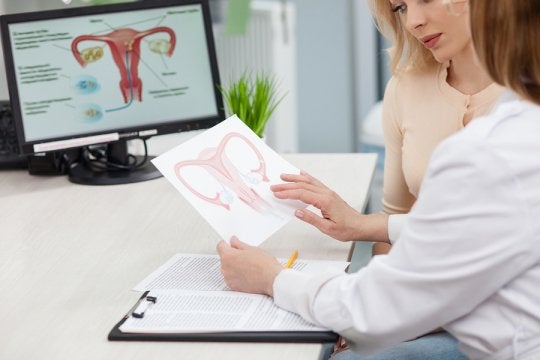A Woman’s Guide to Pap Tests
A Pap test, sometimes called a Pap smear, is performed to detect abnormal cervical cells that could indicate cervical cancer. Women between ages 21 and 65 should generally have Pap tests every three years, though after age 30, women may be able to have the tests every five years, as long the test is combined with an HPV test. However, your gynecologist will help you determine the appropriate testing schedule for you. Here is a look at what you can expect when you have a Pap test.

Preparation
In your gynecologist’s office, your doctor will review your medical history and current medications with you. Next, you will be asked to undress, either completely or only from the waist down, and given a gown to cover yourself. You will then lie down on the exam table and place your heels in stirrups with your knees bent towards your chest and your buttocks at the edge of the table. Your doctor or the nurse assisting in the test will help you get into a position that is comfortable for you and that allows your doctor to perform the test.
Test Procedure
To perform the Pap test, your doctor will gently insert a speculum into your vagina. He or she will ensure that the speculum is a comfortable size and temperature and may use lubrication to make insertion easier. You may feel pressure when the speculum is inserted and when your doctor opens it gently to hold the vagina open to access the cervix. Your doctor will gently scrape cells off of your uterus using a flat spatula or soft brush. These cells are put on a slide to be examined.
Recovery
You can resume your normal activities after a Pap test. Most women don’t experience any discomfort, though some mild tenderness is possible. Your gynecologist can tell you when to expect the Pap test results.
Washington Surgi-Clinic is committed to making your Pap smear in Washington, D.C. as comfortable as possible, and we are available to help with questions about birth control methods and more. Make an appointment today by calling (202) 659-9403.
Recent Posts
Popular Posts
categories
- Uncategorized
- STD
- Washington Surgi-Clinic
- Abortion
- Pregnancy
- Pap Smears
- Birth Control Options
- HPV
- Gynecologist
- Pregnancy Test
- Abortion Safety
- IUD
- Pregnancy Termination
- First Trimister
- Cervical Cancer
- Morning After Pill
- Birth Control Pills
- Chlamydia
- Birth Control Shot
- Gonorrhea
- STD Testing
- Birth Control Implant
- Pelvic Pain
- Birth Control Patch
- HIV
- HPV Vaccine
